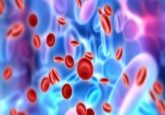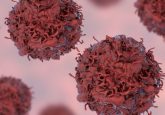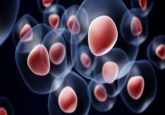Hox gene dysregulation in acute myeloid leukemia

In humans, class I homeobox genes (HOX genes) are distributed in four clusters. Upstream regulators include transcriptional activators and members of the CDX family of transcription factors. HOX genes encode proteins and need cofactor interactions, to increase their specificity and selectivity. HOX genes contribute to the organization and regulation of hematopoiesis by controlling the balance between proliferation and differentiation. Changes in HOX gene expression can be associated with chromosomal rearrangements generating fusion genes, such as those involving MLL and NUP98, or molecular defects, such as mutations in NPM1 and CEBPA for example. Several miRNAs are involved in the control of HOX gene expression and their expression correlates with HOX gene dysregulation. HOX genes dysregulation is a dominant mechanism of leukemic transformation. A better knowledge of their target genes and the mechanisms by which their dysregulated expression contributes to leukemogenesis could lead to the development of new drugs.
Click here to view the full article





